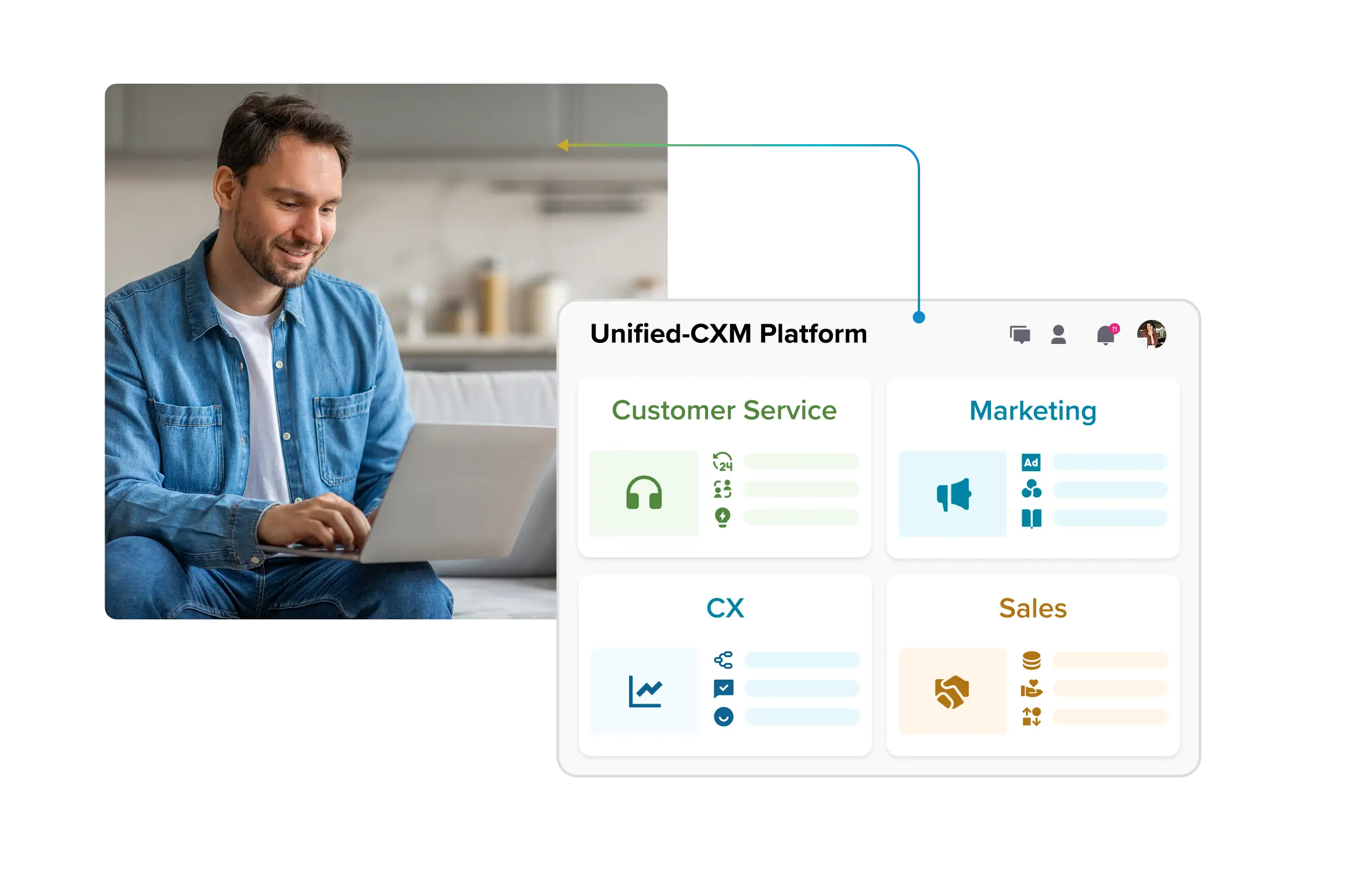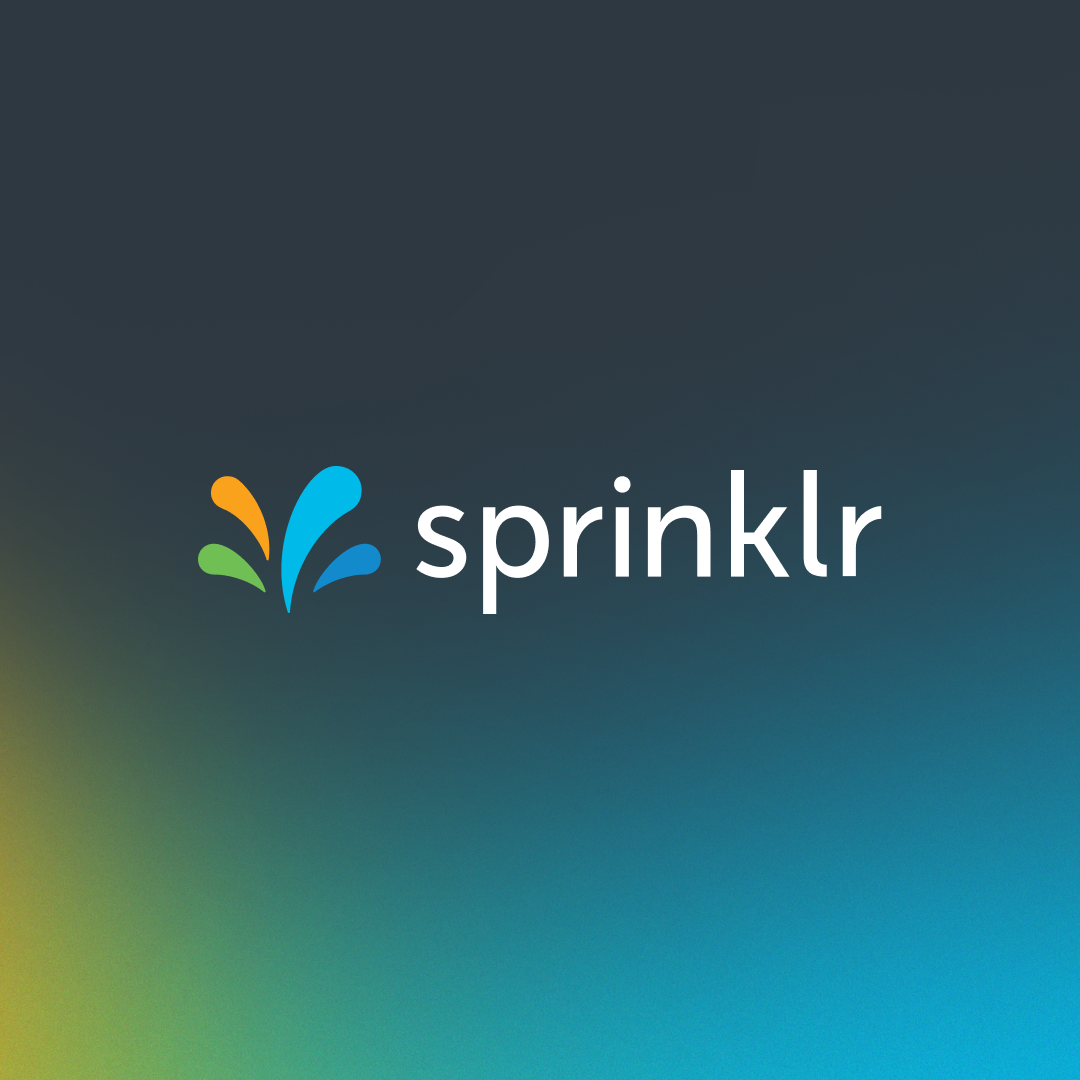The strategic AI-native platform for customer experience management
The strategic AI-native platform for customer experience management Unify your customer-facing functions — from marketing and sales to customer experience and service — on a customizable, scalable, and fully extensible AI-native platform.

The Role of AI in Unifying Your Content Marketing Engine
Artificial intelligence (AI) has become a not-so-secret weapon for savvy content marketers ever since ChatGPT entered the picture in 2022. As per the statistics shared by Turing’s blog post, 11 Best Generative AI Tools and Platforms, this transformative capability has led to numerous benefits across sectors, including a staggering 40% increase in efficiency in content creation and a 75% surge in creative output.
Most marketers are familiar with AI writing tools, but the current AI tools trained by LLM (large language models) can do so much more. Beyond writing, they can create images, write codes, compose music, pen lyrics and even author books, heralding a new era of AI-led productivity.
It's no longer just about using AI to create the first draft of SEO-optimized content, it’s about building an AI-powered engine that handles everything from content creation to content promotion and placement with ease.
Here are some tips for you to better incorporate AI into your overall content marketing efforts:
Content strategy and planning
With AI, marketers gain unparalleled insights into their audience, enabling them to navigate vast amounts of data and uncover valuable trends. For more on that, check out our blog, How to Better Integrate AI, CX and Data to Enhance Business Growth; it covers the crucial steps needed to better integrate data as part of AI and CX integration.
Marketing automation, CRM, and social media listening and syndication tools that are enhanced by AI capabilities can act as data analysts by automating the analysis process and providing insights for crafting strategies that resonate with audiences.
With all these analysis reports, you can work with your data analyst or IT team to write simple scripts that can be fed to AI as prompts to analyze information and then recommend a suitable content marketing strategy.
But there’s a caveat: you need to have a deep understanding of your audience and a sense of what content works and doesn’t work to gauge the effectiveness of the AI-provided content strategy. More importantly, you need to have a point of view and be able to make necessary adjustments when AI hands you a content plan.
Content creation and optimization
One of the most common use cases of AI is to generate content based on user prompts. AI gives writers and marketers a leg-up by quickly creating the first draft; from there, you can continue to tweak your content as you see fit.
Using AI to create and optimize your written content is the first step. In the era of generative AI, you can also create images and social media creatives. To get the most bang for your buck, you need to understand your content creation workflows and the available tools.
And did you know many SaaS-based platforms that you use are in the process of adding AI features at the backend to learn your content writing styles, or to recommend outlines, structures and keywords? Learning to harness AI features that are part of your existing platforms is a great way to foray into AI content generation.
Another way to use AI is to explore your current workflows by adding new third-party AI tools to help content managers speed up repetitive tasks, or to help them automate specific workflow steps.
There are many AI assistants and tools that can simplify content lifecycle management, helping you overcome writer’s block, reducing time spent on revisions and publishing your content. It’s not about selecting tools based on their features; it’s about incorporating the tools that complement existing workflows.
Content distribution and personalization
If AI can optimize your content and help with content planning, it can certainly help with the distribution of your content across desired channels. With AI analyzing massive amounts of data, such as user activity, search history and social interactions, it can create personalized feeds targeted at different customer segments. Thus, content distribution becomes more strategic and automated, which is always a plus for marketing teams. This is something that ad-buying media companies have been doing for a long time. Now, with AI, businesses can do that themselves on a larger scale.
You can start with your existing marketing and sales tools to optimize delivery across multiple channels, from social media to email newsletters. By analyzing audience behavior with customized segmentations, these platforms can tailor content distribution to reach the right audience at the optimal time.
Depending on the setup of your martech stack and dashboards, AI-driven algorithms can also look at past customer content downloads and on-site and paid-ad engagements to serve up the next content pieces or determine the ideal posting time to improve engagement.
Remember — personalization is the holy grail of marketing. Tools like Sprinklr AI+ analyze user data to craft marketing messages that resonate deeply with different demographics. But they require many rounds of testing to be sure you’re getting them to work just right. For content personalization, you need to be incredibly patient and your customer dataset needs to be clean.
At the end of the day, you need to make a call if AI is able to provide you with reasonable recommendations or not; you’re the only person who’ll know if the pros outweigh the cons.
In summary…
Within the digital marketing landscape, the use of AI in content marketing is becoming essential and strategic. Over time, AI can become the glue that holds your content marketing engine together, providing efficiency, accuracy and a personalized touch when done right. It can streamline workflows and elevate your marketing strategies, too. However, even with AI’s superpowers, human creativity and authenticity should remain at the heart of creating and distributing relevant content.
As a marketer, embracing AI allows you to stay ahead of the curve, creating strategies that are optimized for long-term success and helping you navigate the competitive digital landscape with ease. Just be sure you can use it to your advantage; don’t treat it as a cookie-cutter solution to your challenges. Instead, use it as a tool to augment your potential and creativity because the onus is on us humans to maintain a convincingly human touch, that customers yearn for.
If you enjoyed reading the blog then you'd like the below video even better. In this CX-Wise podcast featuring the Chief Content Officer at Marketing AI Institute Mike Kaput, learn how brands are leveraging AI for marketing and get actionable tips to stay relevant and competitive in this AI-driven business landscape.









